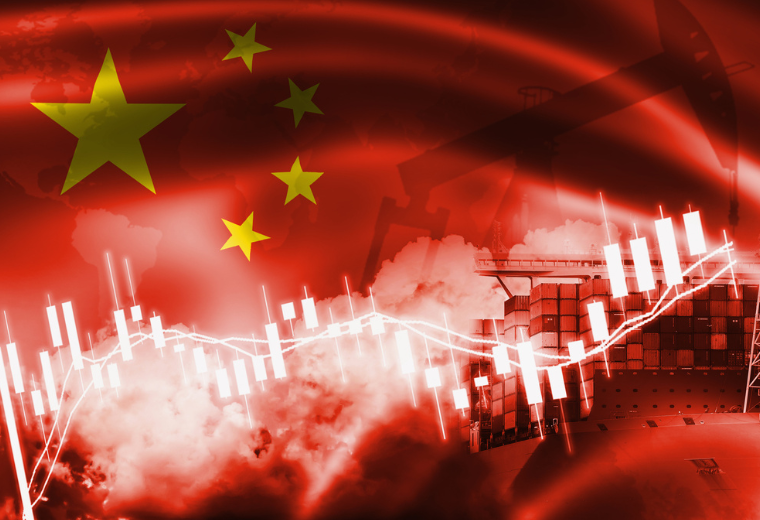Yellen Warns of ‘China Shock’ as EV ETFs Languish

There’s more to this week’s economic and market news than the CPI report.
While market observers sifted through Wednesday’s disappointing March Consumer Price Index, U.S. Treasury Secretary Janet Yellen wrapped up her week-long visit to Guangzhou and Beijing.
The key takeaway for investors: Yellen’s second trip to China in nine months did not result in any shifts in either the U.S. or China’s policies regarding investment and export restrictions.
While the Biden administration has maintained Trump-era tariffs, there was no explicit threat of new sanctions.
Yellen, however, addressed concerns over a return of “China shock,” which refers to the negative impact on the U.S. economy following China's admission to the World Trade Organization (WTO) in 2001.
In the ensuring years, Chinese exports, particularly of manufactured goods, surged to the United States and Europe.
“Now, we are seeing an increase in business investment in a number of ‘new’ industries targeted by the PRC’s industrial policy. That includes electric vehicles, lithium-ion batteries, and solar,” Yellen stated in a press release.
Related ETFs are the Global X Autonomous & Electric Vehicles ETF (DRIV), down nearly 2% year-to-date, and the TSLA Daily Bear ETF (TSLQ), up almost 40% this year, as it bets against the declining EV maker, Tesla, Inc.
China’s Impact on U.S. Inflation
China’s economy Chinese economic growth can have a mixed impact on U.S. inflation, depending on the specific circumstances. Some investment banks, like Goldman Sachs, have recently revised their forecasts upwards. In April 2024, Goldman Sachs raised its China growth projection for 2024 to 5%, citing manufacturing strength in the first quarter.
Here’s how Chinese economic growth can affect U.S. inflation:
Increased supply: A growing Chinese economy often translates to increased production of goods. This can lead to a larger supply of imported goods in the U.S., potentially putting downward pressure on prices for American consumers.
Change in commodity prices: China is a major consumer of raw materials. If its economy grows rapidly, demand for these materials might rise. However, if the increase in supply outpaces a rise in demand, it can lead to lower commodity prices, which are a key driver of inflation for many goods.
Demand surge: A strong Chinese economy can also lead to surging domestic demand for goods. This can create competition for resources with other countries, including the U.S., potentially driving up prices for both countries.
Global supply chain strain: If China's growth strains global supply chains, it can lead to bottlenecks and disruptions. This can cause shortages of goods and drive prices higher for consumers worldwide, including the U.S.
Bottom Line for ETF Investors on China’s Economy
While a growing China generally increases inflationary pressures in the U.S., the overall impact of Chinese economic growth on U.S. inflation depends on various factors like the type of growth (export-driven vs. domestic consumption-driven) and global supply chain dynamics.
For investors wanting equity exposure to China, the largest related fund is the Kraneshares CSI China Internet ETF (KWEB), which tracks a market cap-weighted index composed of overseas-listed Chinese Internet companies. For broader exposure to China and other emerging markets economies, the largest ETF is the iShares Core MSCI Emerging Markets ETF (IEMG).
While these funds can help to diversify a portfolio, investors should remember that emerging markets funds can be volatile as they are exposed to greater geopolitical risk compared to domestic equity ETFs.